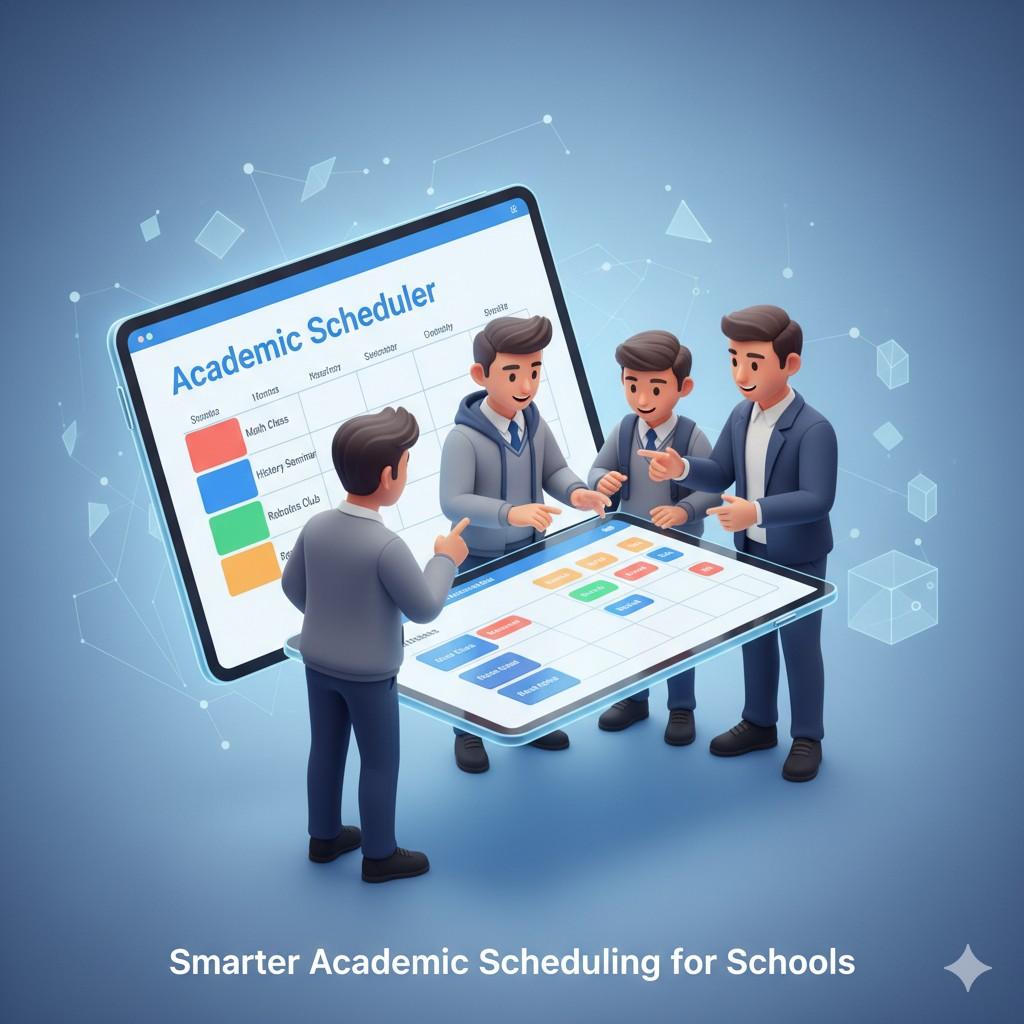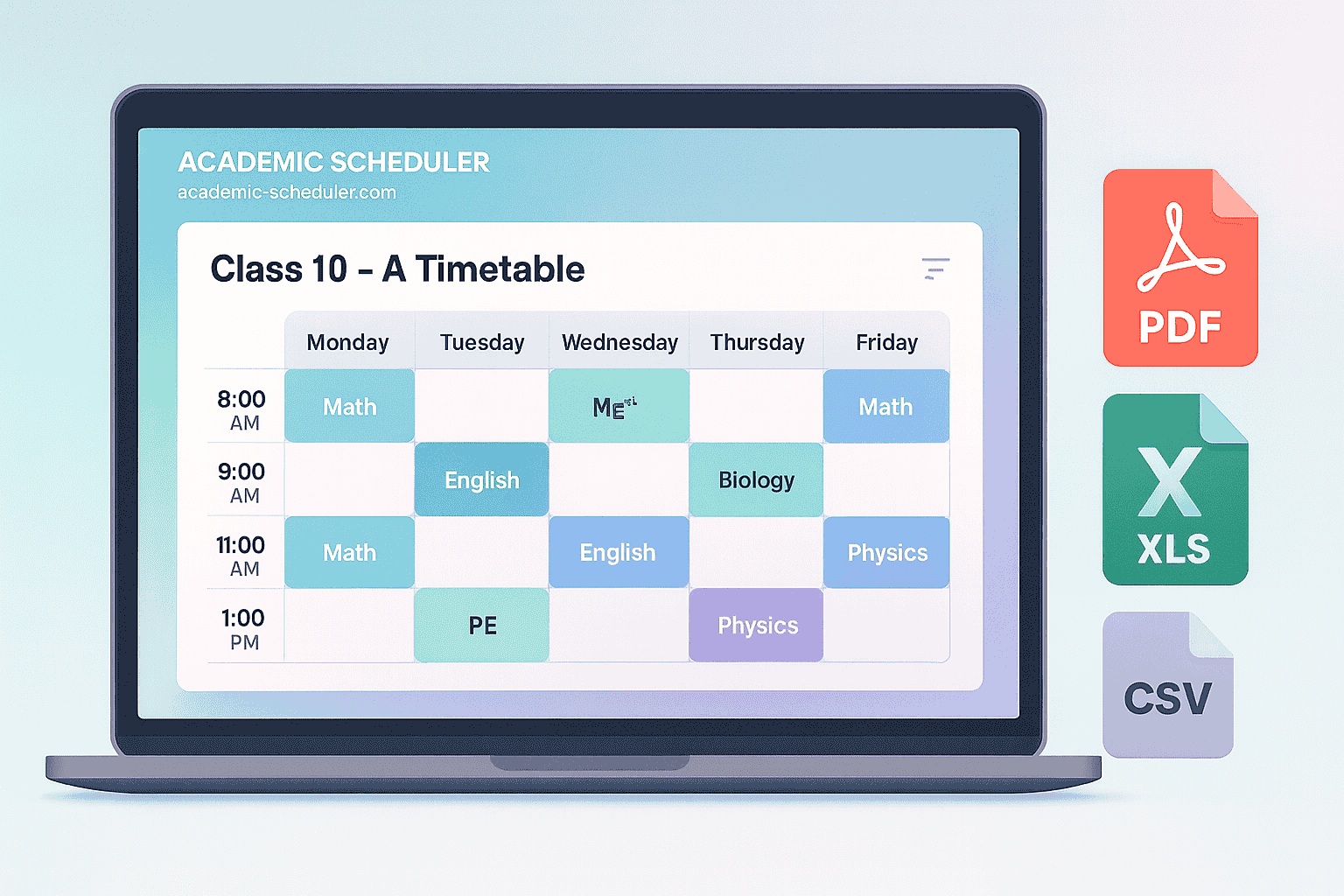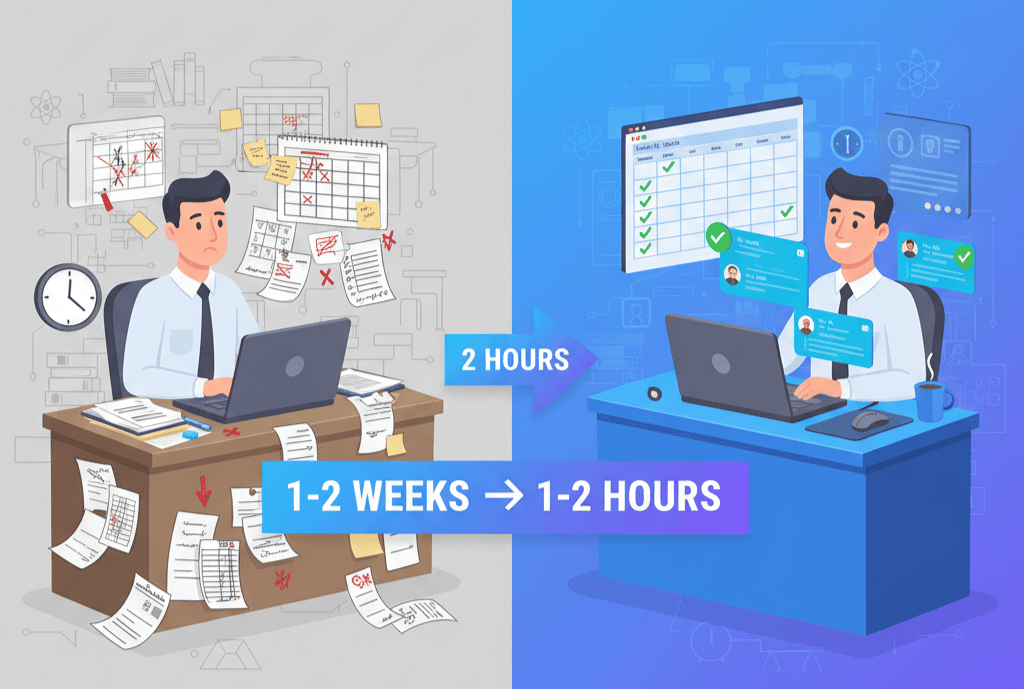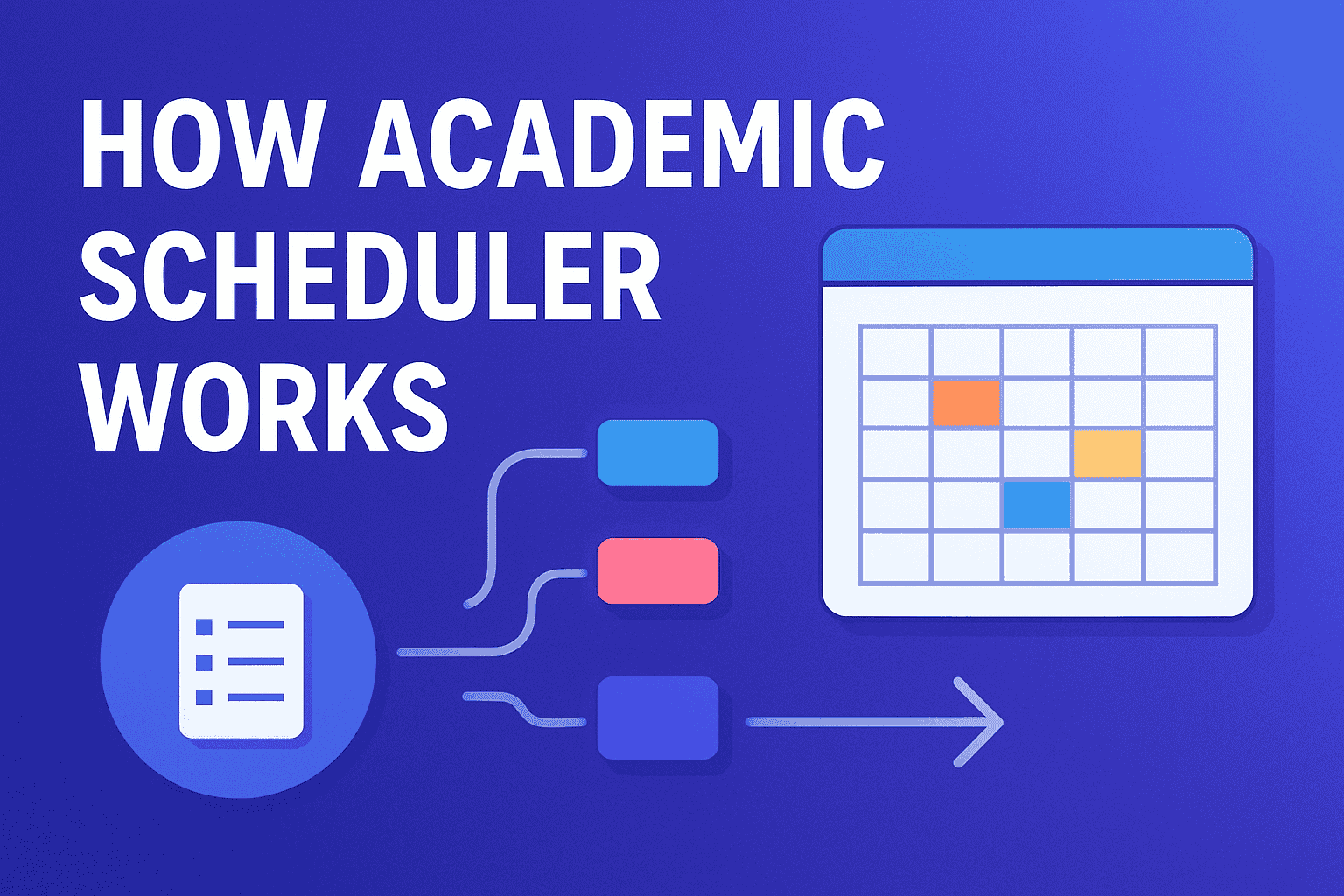Discover how modern academic scheduling software revolutionizes school administration. Learn about digital planning solutions that streamline course management, optimize resources, and improve student outcomes.
Smarter Academic Scheduling for Schools
In today's rapidly evolving educational landscape, schools and universities face increasing pressure to optimize their resources while delivering exceptional learning experiences. Traditional paper-based scheduling methods and outdated systems are no longer sufficient to meet the complex demands of modern academic institutions. Enter smart academic scheduling solutions – the game-changing technology that's transforming how educational institutions plan, organize, and execute their academic programs.
The Evolution of Academic Scheduling
Academic scheduling has come a long way from the days of manual timetable creation using spreadsheets and whiteboards. Today's educational institutions require sophisticated systems that can handle multiple variables simultaneously, including:
- Course Prerequisites and Dependencies: Ensuring students can progress logically through their academic journey
- Faculty Availability and Expertise: Matching qualified instructors with appropriate courses
- Resource Allocation: Optimizing classroom, laboratory, and equipment usage
- Student Preferences: Accommodating individual scheduling needs and learning styles
- Regulatory Compliance: Meeting accreditation requirements and educational standards
Key Insight: Schools using advanced scheduling software report up to 40% reduction in scheduling conflicts and 25% improvement in resource utilization compared to traditional methods.
Benefits of Digital Academic Scheduling
Enhanced Efficiency and Time Management
Modern scheduling platforms automate complex processes that previously required hours of manual work. Administrative staff can focus on strategic planning rather than troubleshooting scheduling conflicts. Real-time updates ensure that all stakeholders have access to the most current information.
Improved Student Experience
Students benefit from more flexible scheduling options, reduced conflicts, and better course availability. Self-service portals allow students to view schedules, request changes, and plan their academic path with greater autonomy.
Optimized Resource Utilization
Intelligent algorithms help schools maximize the use of classrooms, laboratories, and specialized equipment. This optimization leads to cost savings and improved learning environments.
Data-Driven Decision Making
Advanced analytics provide insights into scheduling patterns, resource usage, and student preferences. This data enables administrators to make informed decisions about curriculum planning and resource allocation.
Key Features of Modern Academic Scheduling Systems
Intelligent Conflict Resolution
Advanced algorithms automatically detect and resolve scheduling conflicts before they impact students or faculty. The system considers multiple variables to suggest optimal solutions.
Multi-Campus Coordination
For institutions with multiple locations, modern scheduling systems provide centralized management while accommodating site-specific requirements and resources.
Integration Capabilities
Seamless integration with existing student information systems, learning management platforms, and administrative tools ensures data consistency across the institution.
Mobile Accessibility
Cloud-based solutions with mobile applications enable faculty and students to access schedules, receive notifications, and request changes from anywhere, at any time.
Implementation Best Practices
Successfully implementing an academic scheduling system requires careful planning and stakeholder engagement:
- Needs Assessment: Evaluate current challenges and define specific goals for the new system
- Stakeholder Involvement: Include faculty, staff, and students in the selection and implementation process
- Data Migration Planning: Ensure accurate transfer of existing scheduling data
- Training and Support: Provide comprehensive training for all users
- Phased Rollout: Consider implementing the system gradually to minimize disruption
Future Trends in Academic Scheduling
The future of academic scheduling is being shaped by emerging technologies and changing educational paradigms:
Artificial Intelligence and Machine Learning
AI-powered systems will provide even more sophisticated optimization, predictive analytics, and personalized scheduling recommendations.
Hybrid Learning Integration
As hybrid and online learning become more prevalent, scheduling systems must accommodate both physical and virtual classroom resources.
Predictive Analytics
Advanced analytics will help institutions anticipate enrollment patterns, resource needs, and potential scheduling challenges before they occur.
Looking Ahead: Educational institutions that embrace smart scheduling solutions today will be better positioned to adapt to future challenges and opportunities in the evolving educational landscape.
Conclusion
Smart academic scheduling represents a fundamental shift in how educational institutions manage their most valuable resources: time, space, and human capital. By embracing digital solutions, schools can create more efficient operations, improve student satisfaction, and focus on their core mission of providing exceptional education.
The investment in modern scheduling technology pays dividends through improved efficiency, reduced conflicts, and enhanced learning experiences. As educational institutions continue to evolve, those equipped with intelligent scheduling solutions will lead the way in delivering innovative, student-centered education.
Ready to transform your institution's scheduling process? Explore how Academic Scheduler can help your school achieve smarter, more efficient academic planning that benefits everyone in your educational community.





